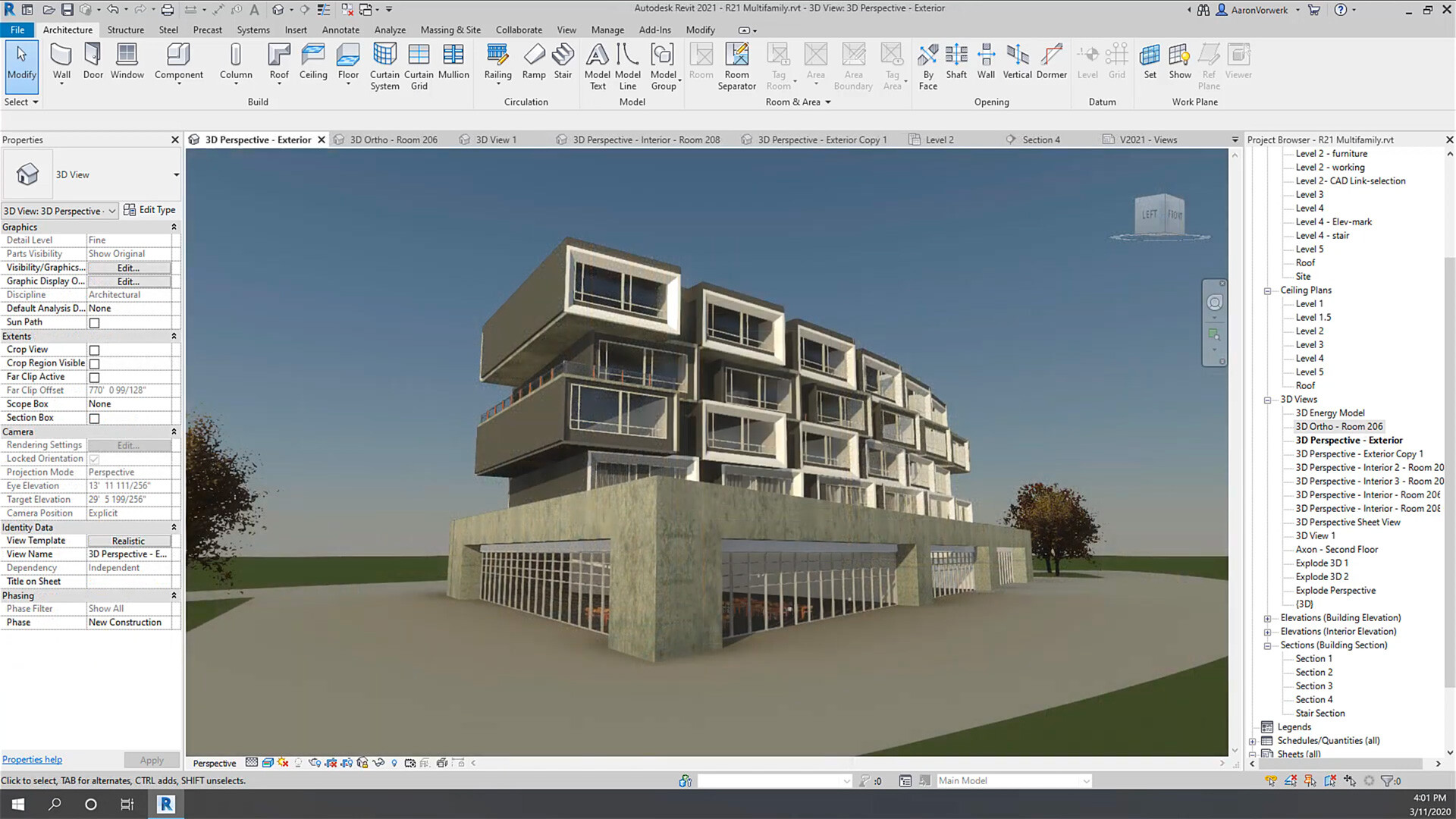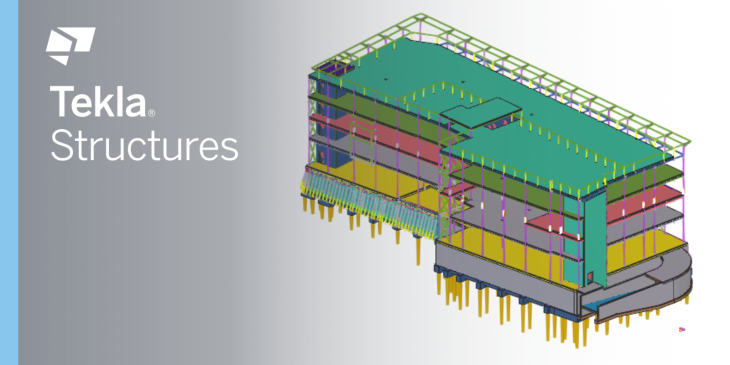Top 10 BIM Online Certification Courses in the USA for Architects & Civil Engineers

Table of Contents
With technology reshaping architecture and civil engineering, BIM certification courses offer the perfect opportunity to upskill. Building Information Modelling is transforming how architects and civil engineers approach design and construction. With the growing demand for BIM expertise, professionals are seeking the best BIM courses for architects and civil engineers to enhance their skills.
In this blog, we will explore some of the best BIM courses with certification, offering industry-relevant knowledge, certification from a recognized institute, and hands-on training to advance your career in the architecture and engineering field.
Top 10 Online BIM Certification Courses in USA: Comparison
When exploring the best online BIM courses with certificates, it is important to compare them based on various factors like fees, duration, eligibility, certification, and learning flexibility. Here is a list of top 10 BIM certification courses.
|
List of course |
Fees |
Duration |
Eligibility |
Certification Obtained |
|
BIM for Architects and Civil Engineers by Novatr |
$3,500 |
7 months |
All AEC professionals can apply |
Yes |
|
Building Information Modeling (BIM) Certificate Program by Arizona State University |
N/A |
3-6 months |
N/A |
Yes |
|
Certificate in BIM by RICS Academy |
$2,201.84 |
90 hours |
N/A |
Yes |
|
Certificate in Revit Basics by University of Houston |
$1,595.00 |
3 months |
N/A |
Yes |
|
BIM Certificate Program by Virtual Design & Construction Institute |
$5,510 |
8 months |
N/A |
Yes |
List of 10 BIM Online Certification Courses in USA
Here is a list of top Building Information Modeling programs available online in the USA, ideal for professionals seeking to enhance their skills in BIM technology. Explore these programs to stay ahead in the rapidly evolving field.
1. BIM Professional Course for Architects and Civil Engineers By Novatr
- Duration: 7 months
- Fees: $3,500
- Key Topics Covered: It focuses on mastering BIM tools like Revit, Navisworks, and Dynamo, and covers workflows for 4D/5D simulations, sustainability modeling.
Master in Building Information Modeling by applying for this course offered by Novatr. This comprehensive course covers Revit and over 10 other essential BIM tools, blending live sessions, mentor-guided projects, and practical ISO-standard workflows. Students gain a professional portfolio and certifications, including Autodesk and NSDC, preparing them for high-demand roles in globally operating AEC firms. With dedicated career guidance, alumni have achieved a 60% average salary hike.
2. Building Information Modeling (BIM) Certificate Program by Arizona State University
- Duration: 3-6 months
- Fees: N/A
- Key Topics Covered: Site utilization with SketchUp, quantity takeoffs using Revit, and clash detection with Navisworks
It is one of the best courses with BIM classes online, which provide professionals with practical, hands-on training in BIM applications. The course emphasizes utilizing BIM software for designing, analyzing, and managing construction projects efficiently. It focuses on real-world applications, enabling participants to create templates, perform project-based tasks, and improve workflow productivity. With flexible online learning and expert guidance, the program is ideal for individuals looking to enhance their skills and embrace the digital transformation in the AEC industry.
3. Certificate in BIM by RICS Academy
- Duration: 90 hours
- Fees: $ 2,201.84
- Key Topics Covered: Business case for BIM, creation of BEP and EIR, and effective stakeholder engagement and collaboration throughout the project lifecycle.
This online certification course in BIM management offers a comprehensive guide to applying BIM principles in construction and infrastructure projects, aligned with international standards like ISO 19650. It provides a thorough understanding of the project lifecycle and the critical role of the BIM manager in advising stakeholders and managing information. The course covers creating BIM Execution Plans (BEP), Exchange Information Requirements (EIR), and fostering a collaborative environment among project stakeholders.
4. Revit Basics Training Course by University of Houston
- Duration: 3 months
- Fees: $1,595.00
- Key Topics Covered: Understanding BIM concepts, creating 3D building models, and using Revit for architectural design, documentation, and project management.
The Revit Basics training course introduces you to the essential tools of Revit Architecture and explores how information interrelates in a BIM model. In this beginner-level course, you will learn to design 3D building models that generate 2D architectural drawings such as floor plans, elevations, and 3D perspectives. The course covers project development, including elements like floors, walls, ceilings, stairs, and roofs, and dives into design options and BIM project management techniques.

5. BIM Certificate Program by Virtual Design & Construction Institute
- Duration: 8 months
- Fees: $5,510
- Key Topics Covered: Creating 3D models of commercial projects using Revit, generating construction documents, and specializing in areas like AutoCAD Fundamentals, Revit MEP, or Revit Structure.
This course equips students with the essential skills and technical knowledge needed to use Revit for creating 3D models of commercial building projects. Throughout the program, you will learn how to develop a 3D model of a moderately complex commercial project and generate construction documents directly from it. You can also choose to specialize in AutoCAD Fundamentals, Revit MEP, Revit Structure, or other training paths. All courses are project-based, taught by practicing professionals, ensuring practical, real-world experience.
6. BIM Training and Certificate Program by Advenser
- Duration: N/A
- Fees: N/A
- Key Topics Covered: Digitalization and collaborative approaches in construction, business cases for BIM, and real-world case studies for applying BIM technology.
This course offered by Advenser gives students insights into the impact of digitalization and collaborative approaches in the construction industry. The course covers the business drivers for change in the construction and operation of built assets. It combines theory with practical application, providing hands-on experience through real-world case studies. Participants will be trained by industry experts and have access to BIM Lab resources at East Stroudsburg University.
7. Building Modeling for Design & Construction Course by Stanford University
- Duration: 10 weeks
- Fees: $4,542.00
- Key Topics Covered: Modeling building elements like walls, windows, and roofs, creating custom parametric models, and applying performance-based analysis for design.
This foundational Building Information Modeling course introduces essential techniques for creating, managing, and applying building information models in design and construction. The course focuses on tools and processes for developing 2D and 3D representations of building components, aiding in architectural design, construction planning, and simulation. Students will also explore six design projects form the core of the curriculum, helping students build practical skills and explore model-based analysis for structural and energy use planning.
8. Diploma in (BIM) and Project Management Professional (PMP) by Udemy
- Duration: 4 hours 34 mins
- Fees: $27.21
- Key Topics Covered: BIM execution plans, project scope and risk management, BIM standards, and the responsibilities of project stakeholders across the lifecycle.
This course offers a comprehensive understanding of both Building Information Modeling and Project Management principles. It covers the creation of a BIM execution plan (BEP), understanding BIM levels of detail, and managing the constraints of different projects. The course also dives into key aspects of project management such as scope, schedule, cost, risk, quality, and procurement management. Additionally, it teaches BIM management for design, construction, and operations, ensuring students are equipped to handle all project phases efficiently.
9. Introduction to Building Information Modeling (BIM) by UCLA Extension
- Duration: 11 weeks
- Fees: $1,050.00
- Key Topics Covered: Parametric design principles, creating architectural plans and sections in Revit, and producing visualizations to demonstrate design accuracy and component interaction.
The Revit Architecture BIM course is one of the best BIM online courses, providing foundational knowledge of using Autodesk’s Revit as a platform for building accurate architectural designs. It focuses on developing parametric designs and leveraging BIM tools to enhance collaboration and communication between design partners. Students will learn how to explore and validate designs with plans, sections, and elevations, and create visualizations that demonstrate how components interact within their environment.
10. BIM For Landscape 101 by BIM Pure
- Duration: 28 minutes
- Fees: N/A
- Key Topics Covered: Identifying design vs. technical challenges, geo-location, and the concept of the landscape "genetic code" for efficient site modeling.
The BIM Landscape Course led by Nehama Shechter-Baraban offers insights into the intersection of landscape architecture and BIM. Nehama, an expert in both fields, brings a wealth of experience as a landscape architect and BIM + Revit expert. The course is not focused on the technicalities of Revit but instead emphasizes essential landscape concepts to help professionals approach site modeling effectively. Participants will learn how to solve design challenges, geolocate projects, and think of landscapes as complex systems, much like a quilt.
Also Read - Top 10 BIM Certifications Compared : Know Which Is Best For You!
Job Prospects After Completing BIM Certification Courses in the USA
BIM is one of the core parts of the architectural industry, and having knowledge in it opens various opportunities for the architects and civil engineers. Here are 15 potential job roles you can pursue after completing a BIM online certification course in the USA, along with their salaries:
1. BIM Manager
Average Salary: $105,000 per year
BIM Manager is responsible for overseeing the implementation of BIM in projects, ensuring that the team follows the correct BIM procedures. They also manage the software tools and coordinate with different teams.
2. BIM Specialist
Average Salary: $94,086 per year
Focuses on the technical aspects of BIM, creating and optimizing models to improve project workflows. They are experts in BIM software and its application in the AEC (Architecture, Engineering, and Construction) industry.
3. BIM Architect
Average Salary: $1,41,934 per year
BIM Architects integrate BIM into architectural design processes to create 3D models, helping with visualization and planning. They combine creative design with technical expertise to bring ideas to life. Their role also includes managing model integrity and ensuring design intent is preserved
4. Construction Project Manager
Average Salary: $1,27,243 per year
A Project Manager focused on BIM handles the planning, execution, and closing of projects, ensuring all team members adhere to BIM protocols. They use BIM to optimize scheduling, costs, and coordination across teams.
5. 3D Visualization Specialist
Average Salary: $103,219 per year
This role involves creating realistic 3D renderings of building projects using BIM models for client presentations and marketing. They bring designs to life, making them easier to understand and evaluate for the team and the stakeholders.
6. BIM Technician
Average Salary: $68,272 per year
A BIM Technician supports the BIM Manager by preparing, updating, and maintaining models. They typically work closely with engineers and architects to ensure that the models are accurate and compliant with design specifications.

Industry Leading BIM Software to Learn As a Civil Engineer in the USA
As a civil engineer, learning the right BIM software tools is essential to staying competitive and advancing your career. Here are some industry-leading software options that you can master, with Revit included as one of the most essential tools for your career growth.
-
Revit: It is a powerful BIM tool for creating accurate 3D models, architectural designs, and construction documents. Completing a BIM architecture course can enhance your skills to manage complex building projects efficiently, making you an in-demand professional in the industry.
-
Tekla Structures: A leading software for structural engineering, Tekla Structures is perfect for creating detailed designs for steel and concrete structures. It’s a key tool for engineers focused on large-scale construction projects.
-
AutoCAD: Another classic tool for 2D drafting and design, AutoCAD is a staple in civil engineering. It supports both 2D and 3D design work, helping engineers create detailed plans and blueprints for projects.
-
Civil 3D: It is a must-learn tool for civil engineers, Civil 3D specializes in grading, drainage, and other essential civil engineering aspects, making it a go-to software for land development projects.
-
Navisworks: Primarily used for project review, coordination, and clash detection. Navisworks integrates different models into a single 3D environment, allowing engineers, architects, and construction teams to identify potential issues and streamline collaboration during the planning and execution phases.
-
Rhino: A 3D modeling software that excels in complex geometries and is widely used in both architectural and structural engineering designs for unique and intricate shapes.
-
BIM 360: It is a cloud-based platform by Autodesk designed to connect project teams and data in real-time. It allows civil engineers and architects to collaborate more effectively, manage construction processes, and keep track of documents, designs, and schedules throughout the project lifecycle.
-
ArchiCAD: While traditionally an architectural tool, ArchiCAD is gaining popularity among civil engineers for its comprehensive BIM capabilities, especially for complex, multi-discipline projects.
-
SketchUp: It is a user-friendly 3D modeling tool that’s especially popular for architectural and interior design projects. It allows users to quickly create detailed 3D models and is widely known for its simplicity and versatility, making it ideal for both beginners and professional.
Conclusion
Obtaining a BIM training online certification is an excellent way for architects and civil engineers to gain essential skills in modern construction practices. These courses provide comprehensive knowledge of BIM software tools, project management, and design integration, which are indispensable in today’s evolving construction industry.
If you are looking to enhance your professional skills, the BIM Professional Course for Architects & Civil Engineers by Novatr is highly recommended. This course offers in-depth training and practical insights that are critical for navigating BIM workflows. It provides a thorough understanding of project coordination, model integration, and efficient data management.
Check out our Resource Page for industry updates and valuable insights!

 Thanks for connecting!
Thanks for connecting!

-1.jpg)
.jpg)
.png)
.jpg)





